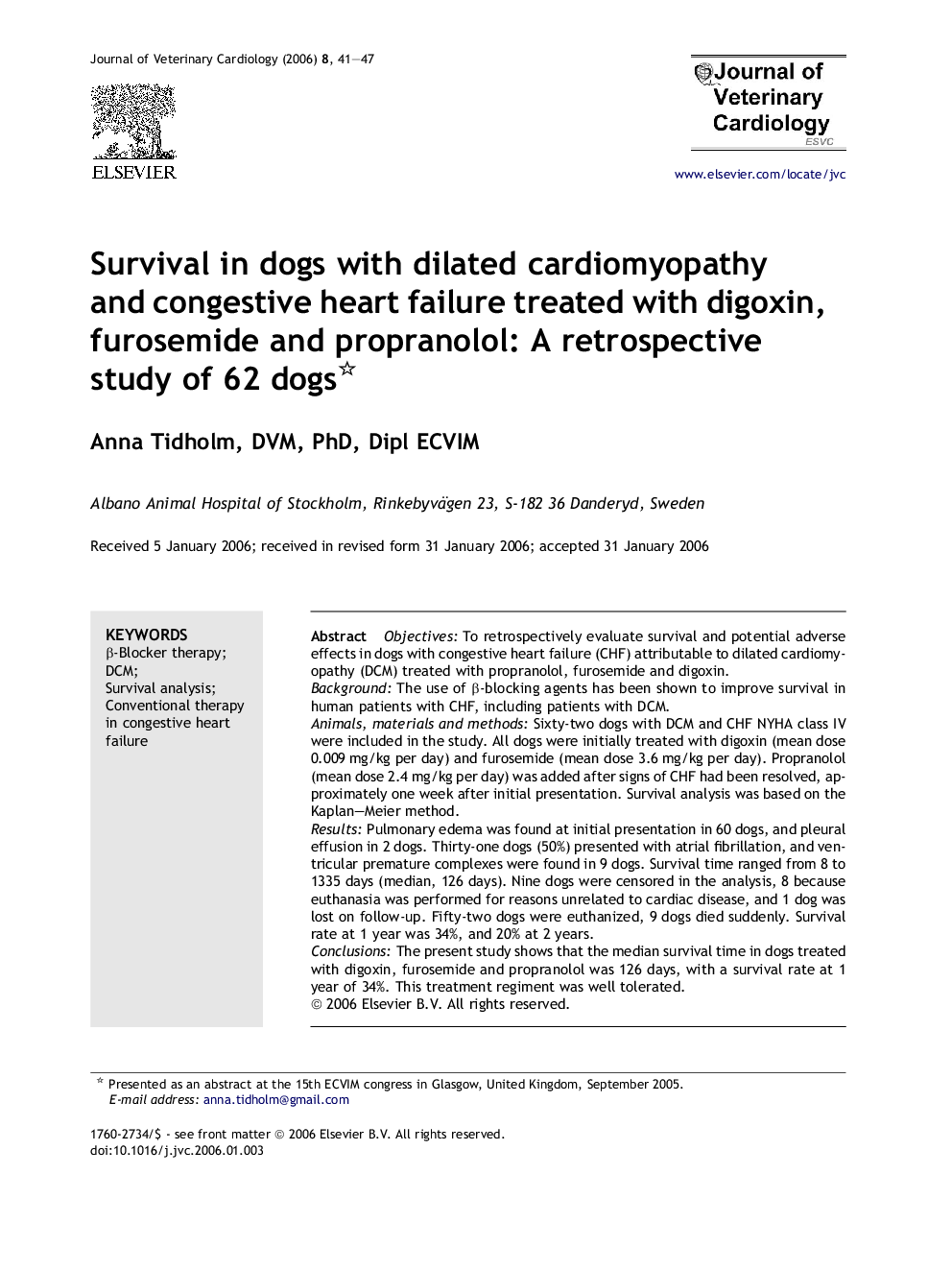| Article ID | Journal | Published Year | Pages | File Type |
|---|---|---|---|---|
| 2400410 | Journal of Veterinary Cardiology | 2006 | 7 Pages |
ObjectivesTo retrospectively evaluate survival and potential adverse effects in dogs with congestive heart failure (CHF) attributable to dilated cardiomyopathy (DCM) treated with propranolol, furosemide and digoxin.BackgroundThe use of β-blocking agents has been shown to improve survival in human patients with CHF, including patients with DCM.Animals, materials and methodsSixty-two dogs with DCM and CHF NYHA class IV were included in the study. All dogs were initially treated with digoxin (mean dose 0.009 mg/kg per day) and furosemide (mean dose 3.6 mg/kg per day). Propranolol (mean dose 2.4 mg/kg per day) was added after signs of CHF had been resolved, approximately one week after initial presentation. Survival analysis was based on the Kaplan–Meier method.ResultsPulmonary edema was found at initial presentation in 60 dogs, and pleural effusion in 2 dogs. Thirty-one dogs (50%) presented with atrial fibrillation, and ventricular premature complexes were found in 9 dogs. Survival time ranged from 8 to 1335 days (median, 126 days). Nine dogs were censored in the analysis, 8 because euthanasia was performed for reasons unrelated to cardiac disease, and 1 dog was lost on follow-up. Fifty-two dogs were euthanized, 9 dogs died suddenly. Survival rate at 1 year was 34%, and 20% at 2 years.ConclusionsThe present study shows that the median survival time in dogs treated with digoxin, furosemide and propranolol was 126 days, with a survival rate at 1 year of 34%. This treatment regiment was well tolerated.
